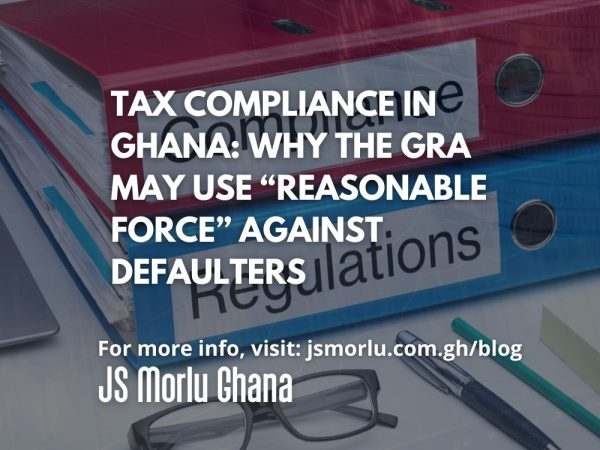Tax compliance is a cornerstone of any thriving economy, and in Ghana, the Ghana Revenue Authority (GRA) is charged with ensuring that individuals and businesses meet their obligations. Recently, the Commissioner-General of the GRA, Anthony Kwasi Sarpong, clarified that while the Authority emphasizes voluntary compliance, the law also permits it to use “reasonable force” against persistent tax defaulters.
This approach, he stressed, isn’t arbitrary it is grounded in the law and designed to strike a balance between fairness and enforcement.
Voluntary Compliance Comes First
According to Mr. Sarpong, the GRA prioritizes voluntary tax compliance. Taxpayers who owe are first given a 30-day notice to settle their obligations. This grace period provides an opportunity for individuals and businesses to comply without penalty.
However, if the taxpayer ignores this notice, the law empowers the GRA to escalate enforcement measures.
What Does “Reasonable Force” Mean in Practice?
The concept of reasonable force may sound harsh, but it simply refers to lawful measures available to the GRA when taxpayers with the means to pay refuse to do so. Examples include:
- Freezing or redirecting funds: If a taxpayer has money in their bank account but refuses to pay, the GRA can instruct banks to prioritize tax payments before allowing other withdrawals.
- Restricting business operations: In some cases, the Authority can physically prevent a business from trading until taxes are paid.
- Seizure of assets (in rare cases): As a last resort, GRA may secure assets to recover outstanding liabilities.
Mr. Sarpong emphasized that these actions are rare and only applied when taxpayers are deliberately non-compliant.
Balancing Firmness with Fairness
One key message from the GRA is that enforcement is not about intimidation but about ensuring fairness in the system. While some defaulters attempt to exploit loopholes, many businesses face genuine financial difficulties.
For this reason, the law allows flexibility:
- Taxpayers facing hardship can negotiate repayment plans lasting six months to a year.
- Businesses that cooperate are often spared harsher enforcement actions.
This dual approach firm, when necessary, but flexible when justified has reportedly yielded strong results. Many businesses choose to enter repayment agreements rather than risk penalties or forced closures.
Why This Matters for Businesses in Ghana
The GRA’s message is clear: compliance is not optional. Businesses and individuals that fail to pay taxes risk financial restrictions, reputational damage, and even suspension of trading.
But on the positive side, those who engage early with the GRA often find structured solutions that allow them to stabilize their finances without crippling enforcement.
For entrepreneurs, small businesses, and large corporations alike, the lesson is simple:
- Prioritize tax compliance.
- Communicate with the GRA if financial challenges arise.
- Avoid the costs, financial and reputational of forced enforcement.
Key Takeaways
- Ghana’s tax law permits the GRA to use reasonable force against defaulters, but only after opportunities for voluntary compliance are exhausted.
- Enforcement tools include freezing accounts, blocking business operations, or seizing assets.
- Taxpayers in genuine financial difficulty can negotiate structured repayment plans.
- Compliance protects both businesses and the integrity of Ghana’s tax system.
